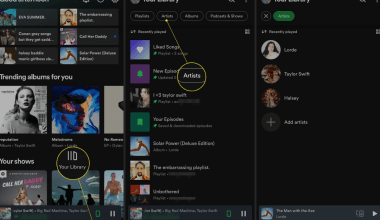Music is a universal language that connects people across the globe, but have you ever wondered about the people and organizations behind your favorite songs? Enter the world of music labels. If you’re new to this topic, don’t worry—we’re here to break it down in simple terms. This blog will explore what a music label is, what it does, and why it plays such a vital role in the music industry.
What Exactly Is a Music Label?
A music label, also known as a record label, is essentially a company that works with artists to create, promote, and distribute their music. Think of it as a bridge between musicians and listeners. Labels manage everything from recording to marketing, ensuring that an artist’s music reaches as many ears as possible.
Some well-known music labels include Universal Music Group, Sony Music, and Warner Music Group. These are often called major labels. In contrast, smaller companies are known as independent or indie labels. Regardless of size, all music labels have one primary goal: to help artists succeed.
The Main Roles of a Music Label
To truly understand what a music label is, we need to look at what it does. Here are some key roles a music label plays:
1. Discovering Talent
Music labels are constantly on the lookout for new and unique voices. They scout talent through auditions, social media, live performances, and referrals. If you’ve ever dreamed of being discovered, a music label might be the one to make it happen.
2. Recording Music
Once an artist signs with a label, the recording process begins. Labels often provide access to state-of-the-art studios, skilled producers, and sound engineers to create high-quality tracks.
3. Marketing and Promotion
Creating music is just the first step. Labels handle the challenging task of promoting it. They plan marketing campaigns, arrange media appearances, and even manage social media to ensure the music gains traction.
4. Distributing Music
A music label ensures that songs are available on popular platforms like Spotify, Apple Music, and YouTube. They also manage physical distribution if CDs or vinyl are involved.
5. Financial Support
Producing music can be expensive. Music labels provide the necessary funding to cover recording, production, and marketing costs. In return, they often take a percentage of the profits.
Types of Music Labels
Not all music labels are the same. Here’s a quick look at the different types:
1. Major Labels
These are large companies with significant resources and global reach. They can promote artists on a massive scale but often focus on mainstream music.
2. Independent Labels
Indie labels are smaller and usually focus on niche markets or specific genres. They often provide artists with more creative freedom but may have fewer resources.
3. DIY Labels
These are artist-run labels. They give musicians complete control over their work but require a lot of effort and expertise to manage.
Why Are Music Labels Important?
Music labels might seem like middlemen, but they play a crucial role in the industry. Here’s why:
1. Boosting Visibility
With so much music being released every day, it’s easy for songs to get lost. A music label ensures that an artist’s work gets the attention it deserves.
2. Providing Expertise
From marketing to production, labels bring years of experience to the table. They know what works and what doesn’t.
3. Building Connections
Labels have relationships with media outlets, concert organizers, and other industry players. These connections can open doors that would otherwise remain closed.
Challenges of Working With a Music Label
While music labels offer many benefits, there are challenges too. Here are some common concerns:
1. Creative Control
Artists often feel they have to compromise their vision to fit the label’s agenda.
2. Financial Arrangements
Many labels take a significant cut of an artist’s earnings, which can lead to financial stress.
3. Long Contracts
Some labels require artists to sign lengthy contracts, which can be restrictive.
How to Choose the Right Music Label
If you’re an aspiring artist, choosing the right label is crucial. Here are some tips:
- Research: Understand the label’s history and reputation.
- Match Your Style: Ensure the label works with your genre of music.
- Read Contracts Carefully: Always consult a lawyer before signing anything.
The Future of Music Labels
The music industry is constantly evolving, and so are music labels. With the rise of digital platforms and independent artists, labels are adapting to stay relevant. While some predict that artists may eventually bypass labels altogether, others believe they will continue to play a vital role in helping musicians succeed.
Conclusion
So, what is a music label? It’s a powerhouse that helps artists bring their music to the world. While it has its challenges, the benefits often outweigh the drawbacks. Whether you’re a budding musician or just someone who loves music, understanding the role of music labels gives you a deeper appreciation for the songs you enjoy every day.
For further reading, explore these related articles:
- The Evolution and Vibrance of the Indian Music Industry
- Zee Music Company Owner: Shaping the Sound of India
For additional resources on music marketing and distribution, visit DMT Records Private Limited.






